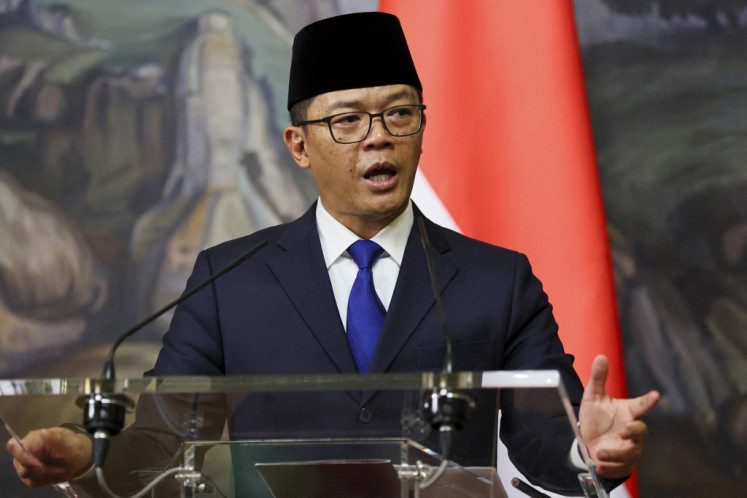Popular Reads
Top Results
Can't find what you're looking for?
View all search resultsPopular Reads
Top Results
Can't find what you're looking for?
View all search resultsPhilanthropy backs RI’s meager research
While the country’s research fund is among the lowest in the region, there is growing philanthropic interest in contributing to the bucket, with a potential fund reaching Rp 1 trillion (US$75 million) per year
Change text size
Gift Premium Articles
to Anyone

W
hile the country’s research fund is among the lowest in the region, there is growing philanthropic interest in contributing to the bucket, with a potential fund reaching Rp 1 trillion (US$75 million) per year.
The Public Interest Research and Advocacy Center (PIRAC) surveyed in April to July 28 family foundations, companies and intermediary foundations and found that each had contributed almost Rp 1 billion for various research programs in education and research institutions.
“Consistent with our study last year, we found huge interest from these institutions to contribute in research,” Nor Hiqmah, the executive director of PIRAC told The Jakarta Post on Sunday.
She is referring to the study conducted jointly between PIRAC and Jakarta-based Muslim philanthropic organization Dompet Dhuafa involving 400 companies. The study found that in 2014, donations from philanthropic companies increased to Rp 12.45 trillion in 2014 from Rp 8.6 trillion per year in 2013.
“Most research funds were given for issues related to social and economic matters, science and technology and also research for the benefit of the philanthropic companies themselves,” said Nor.
The Research, Technology and Higher Education Ministry revealed that the research budget in Indonesia amounted to only 0.9 percent of gross domestic product (GDP), — far lower than South Korea (3.4 percent), Singapore (2.5 percent) and Malaysia (1 percent).
The government realizes that the amount is not enough and public contributions are needed. “The bigger budget a government allocates for research, the more developed a country will be,” Muhammad Dimyati, the ministry’s director general for research and development reinforcement, said.
He cited that South Korea, a country that achieved its independence only two days before Indonesia, had become a globally competitive nation today because it had invested more in research and development.
In Indonesia, some research projects have been implemented involving philanthropic organizations, including the Eliminate Dengue Project (EDP-Yogya), which is a collaborative project between the School of Medicine at Gadjah Mada University and entirely funded by a Jakarta-based Tahija Foundation.
Another helpful research project carried out in Indonesia is a collaboration between the Tahir Foundation and Bill & Melinda Gates Foundation to fight Malaria. The research is considered important as Malaria outbreaks have occurred in the country, specifically in poor areas.
Despite having great potential, challenges remain to ensure the process runs smoothly. “Currently, no law regulates the research funds from philanthropic organizations,” Nor said.
She added that a lack of incentives for philanthropy organizations also hampered their desire to carry out such activities. Thus, PIRAC recommends the government provide more incentives to them such as tax relief, easing the permit issuance process and awards.(win)









